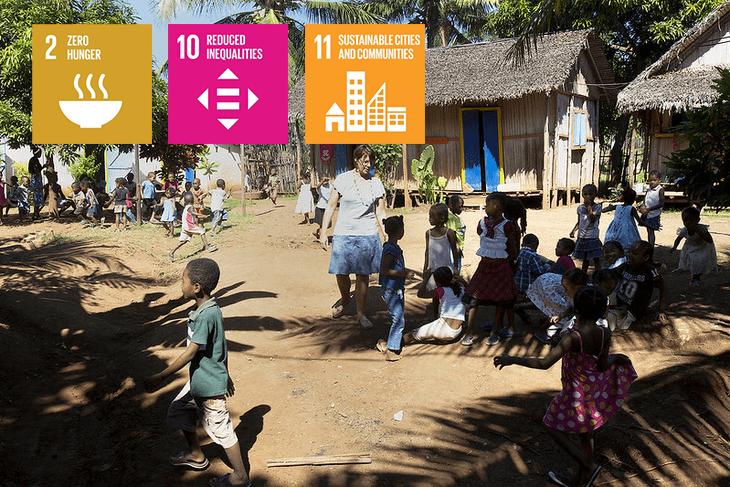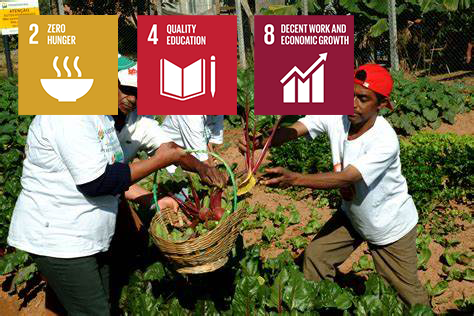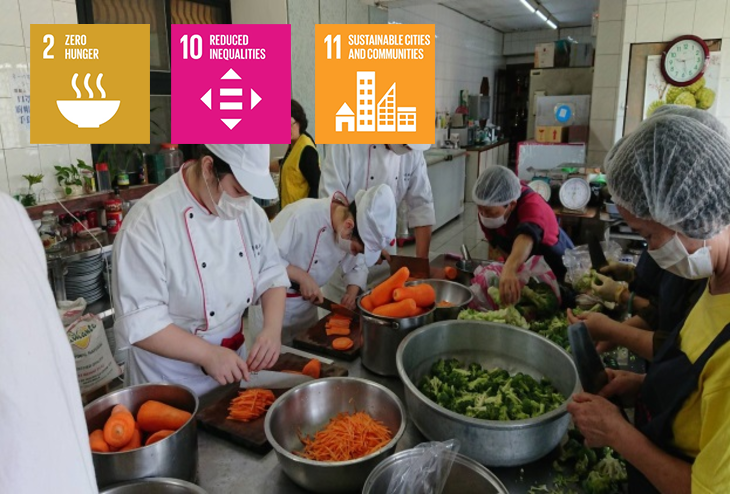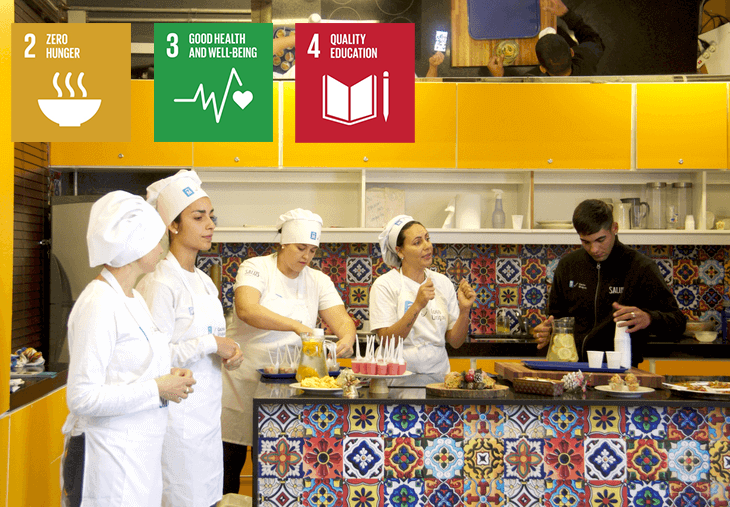【FOCUS】 End Hunger and Enjoy the Healthy Life Together
According to the relevant statistics of the United Nations, nearly 690 million people in the world are hungry, accounting for 8.9% of the world’s population. How to deal with the food crisis so that everyone can enjoy an adequate and nutritious food and thus grow up healthy is a crucial issue. UN Sustainable Development Goal 2 refers to the need to end hunger, achieve food security and improved nutrition and promote sustainable agriculture. This week’s IN FOCUS features five innovative urban solutions to fighting hunger and promoting food security.
Antananarivo, Madagascar
Better Food for Kids

The City of Antananarivo’s Better Food for Kids program provides school children, especially those from vulnerable families, with nutritional school meals by establishing vegetable gardens in school yards. Better Food for Kids directly benefits the health and wellbeing of young people and helps to increase school retention rate and improve children’s ability to learn. The initiative is supported by the AULNA (Urban Agriculture Low Space and No Space) program, local plant nurseries and citizens.
More info: https://use.metropolis.org/case-studies/better-food-for-kids
Bogotá, Colombia
Bogotá Sin Hambre: Bogota Without Hunger

Aspects of Bogota sin Hambre, particularly urban agriculture and farmers' markets, help to alleviate poverty and undernutrition, as well as address the health and nutrition issues related to the obesity problem in Colombia.
The urban agriculture program is run through a partnership between the Botanical Garden and municipal government. The program teaches and encourages participants to grow food in underused spaces. It encourages also using natural methods and offers technical assistance. Hundreds of soup kitchens in the city have been built or upgraded for the program, helping thus to reduce poverty and chronic malnutrition in Bogota.
More info:
https://use.metropolis.org/case-studies/bogota-sin-hambre-bogata-without-hunger
São Paulo, Brazil
Cities without Hunger — Community gardens

Malnutrition is one of the most immediate problem that Sao Paulo has to face. The Cities without Hunger-community gardens project seeks to connect the production of food in disadvantaged communities with high population density to ameliorate the situation. The responsible organisation tries to empower communities to improve the social, environmental, and economic issues affecting them. The project aims to implement a farming nucleus and satellite agricultural sites in order to generate urban job opportunities, skill-building for participants and their dependents, systematic income generation from selling the produce and value-added processed goods, and social integration between communities and their environments. These objectives are to be achieved using a participatory process.
The main steps and instruments are to search, clean, and use abandoned sites as gardens. Inhabitants work in the fields to produce vegetables to donate to poor families, and sell at markets. The project not only fights malnutrition, but also creates jobs and income for workers in the gardens.
More info: https://use.metropolis.org/case-studies/brasil-sao-paulo-community-gardens
New Taipei, China
The New Taipei City Surplus Food Network

The New Taipei City Surplus Food Network (NTCSFN) collects vegetables, fruit, and other edible products that have an unattractive appearance from the New Taipei City markets and sends them to the Social Welfare Department for distribution. Other social-welfare and private organizations help the government to implement similar programs, so that resources can be flexibly provided to people in need. Individual donations to facilitate the implementation of such programs are also accepted.
To enhance citizens’ identification with, and participation in, these food-saving activities, the concept is promoted through education, as well as in various channels of the food industry (e.g., restaurants and businesses), thereby reducing food waste in the city.
More info:
https://use.metropolis.org/case-studies/the-new-taipei-city-surplus-food-network
Montevideo, Uruguay
Uruguay Kitchen Program

The Municipality of Montevideo through the Secretariat of Education for Citizenship operates the food education program ‘Cocina Uruguay’ (Uruguay Kitchen Program). The program acknowledges a citizen’s right to good health and wellbeing by providing free classes in food education.
The Uruguay Kitchen Program is available to all residents of the city and the surrounding metropolitan area and is serviced by a mobile unit equipped with a kitchen designed for teaching. Additionally, there is a fixed classroom located in the Agricultural Market of Montevideo.
The program seeks to promote healthy food preparation and consumption using seasonal and low-cost food. Emphasis is placed on nutritional aspects that encourage healthy eating, attitudes and practices.
More info: https://use.metropolis.org/case-studies/uruguay-kitchen-program
Originally published on use: urban sustainability exchange. use is an open knowledge exchange platform dedicated to sustainable city making.
Visit use: https://use.metropolis.org/


 In Focus | World Cities Day: People-Centred Smart Cities
In Focus | World Cities Day: People-Centred Smart Cities City Stories | Fostering community resilience: A lifeline for the Central African Republic
City Stories | Fostering community resilience: A lifeline for the Central African Republic In Focus | Innovative Education, Empowering Futures
In Focus | Innovative Education, Empowering Futures




















 Tel: +86 020 3780 4434
Tel: +86 020 3780 4434 Email: info@guangzhouaward.org
Email: info@guangzhouaward.org Adress: Unit 01-7, 28th Floor, No. 7, Chunrong 3rd Road, Tianhe District, Guangzhou, Guangdong, 510000, PRC
Adress: Unit 01-7, 28th Floor, No. 7, Chunrong 3rd Road, Tianhe District, Guangzhou, Guangdong, 510000, PRC




